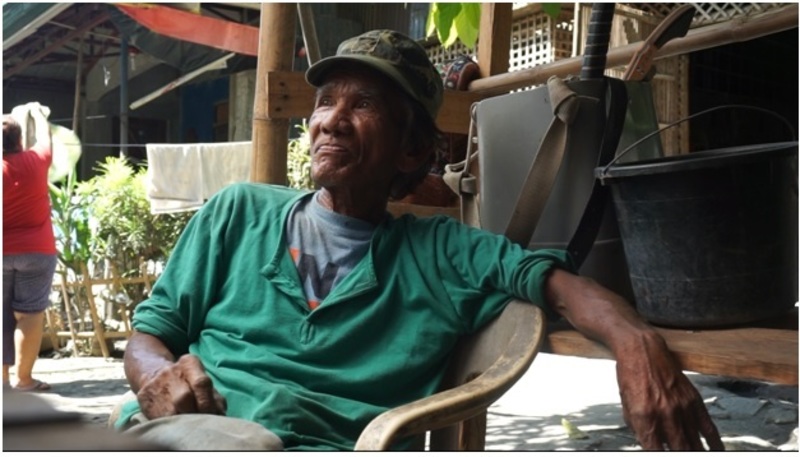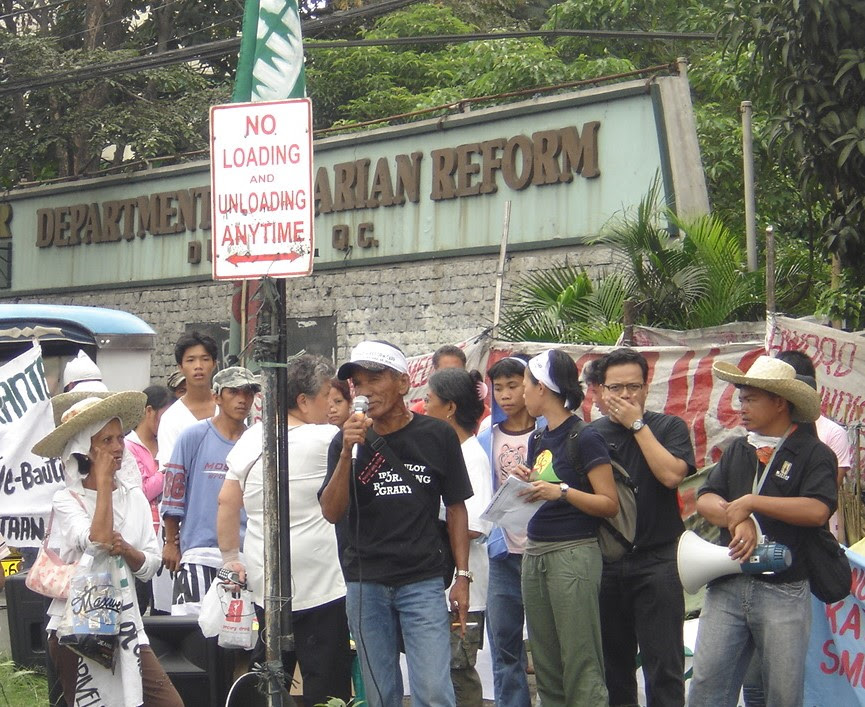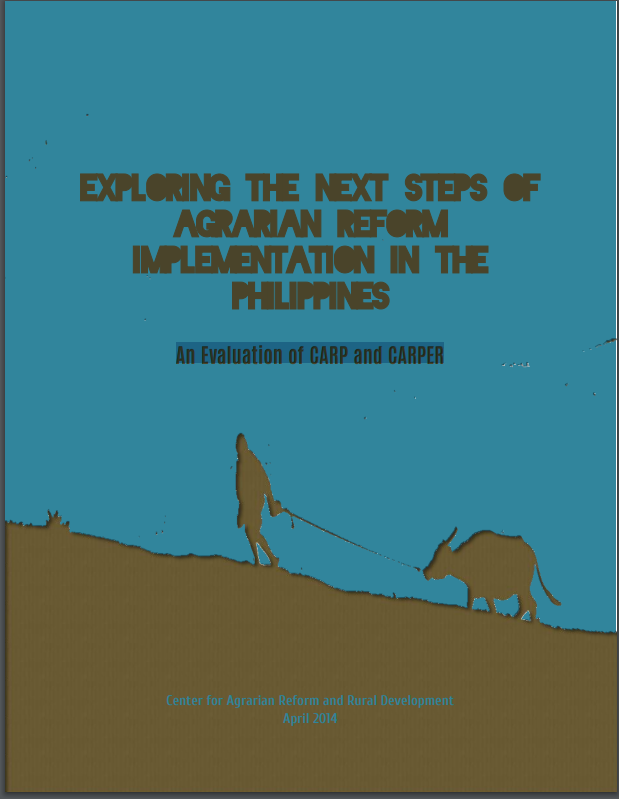
My name is Gregorio Ellao. They call me Ka Oyong. I was born and raised in in Brgy. Gimalas, Balayan, Batangas. I was 13 and in high school when my father passed away. I had to stop schooling to support the needs of my mother and younger sister.
I work hard. But even at a young age, I realized how the farming field was not fair for share-tenants like me, and for leasehold farmers in the adjacent land. No matter how hard I work, it was never enough to meet the needs of my family. It seemed that the capital paid by my landlord, was greater, in all respects to the labour that I put on the land where I toil. I convinced my fellow tenants to talk to our landowner and ask him if it's possible to improve our tenancy status so that we become leaseholders. I thought that it was only fair. And if other landlords can do it for fairness, why not him?
But my landlord was firm. We got into court, where our lawyer told us that we would win. But money does wonders in more ways than you can imagine. Nobody helped us. We lost badly. I also felt that I made my family more miserable: why fight against a system that's been there since I was born? But the tide improved when my landlord decided to sell his land. Our new landlord allowed us to be leaseholders. This agreement was even witnessed by the Municipal Agrarian Office. This time, we didn't immediately go into the court. I realized, maybe there are better (and more peaceful) ways than litigation. After all, I know that landlords are not always motivated by money. And sometimes, it's unfair to portray them as greedy pot-bellied lots. They, too, can be made to listen.
Beginning paralegal work
In the mid-1980s, talks about agrarian reform in sugarlands were getting stronger before and after the EDSA people power revolution. It was hope for most of us. For some, it was something too good and too painful to even hope for. When you're so used to being dictated by people what to do, it gets really scary to be working for yourself. You're suddenly left to your own devices, with nobody telling you when to jump and how high.
But then, I also know that nobody knows the land that I till better than I do. If I can only decide freely, I can do many other things to make this land productive – and imagine what it can do for my family!

I joined Katipunan ng Samahang Magsasaka (KASAMA). I worked with Ka Roger Magyaya, then President of KASAMA. We affiliated with Pambansang Kilusan ng mga Samahang Magsasaka (PAKISAMA). As a founding associate, I became President of Gimalas, Balayan Chapter, and later, I was nominated Vice President for four terms. At that time, KASAMA had members in eight municipalities in the first district of Batangas.
But more than making noise, I knew there was something that needs to be done. Together with other KASAMA members, I went on a training to become a paralegal. Our training was provided by the Structural Alternative Legal Assistance for Grassroots (SALAG). Through this, we were able to assist fellow-farmers, who had no resources for legal advice, to stand against their landlords and be covered by the Comprehensive Agrarian Reform Program (CARP). Soon enough, we begin to win cases. We were then recognized by the Department of Agrarian Reform Adjudication Board (DARAB) and the Provincial Agrarian Reform Adjudicator (PARAD). CARRD, which was then a fledgling non-government organization, helped us by providing us and other farmers with continuous legal education.
As we win more cases, I began to see the old fears resurface. What happens to a farmworker, who, in all his life depended to his landlord for even the most mundane as the amount of fertilizer to be put in the farm, manage his own land? CARRD helped us a lot to conquer this fear when it organized Nagkakaisang Mamamayan ng Kanlurang Batangas Multi-Purpose Cooperative (NAGKASAMA-MPC). NAGKASAMA separated our political and economic concerns, and through it, we were able to get the services that we need – production credit, access to farm facilities, training, and even funds in times of emergencies.
At present
I am now 70 years old. With my wife, Tomasa, we were able to send all our five children to school. They're all college graduates and have decent jobs. The need to financially support my family is no longer as strong now. I can retire. But I don't want to. Being a paralegal is fulfilling, even if it wasn't always easy. I had my fair share of landowner intimidation, but I will never get tired of helping farmers as long as I am still able. Right now, I also find it fulfilling to share what I learned to our new batch of paralegals. I hope I'm not too modest in saying that I consider this my small legacy to agrarian reform and to all farmers like me who dreamt of holding a title of their land.
I will also never get tired of farming. My land allows me to reap vegetables, sugarcane and rice. For me, the pull of the land is so strong, I know I can never quit it until my last breath. I'm so glad I didn't stop believing, in spite of the odds. After all, this made me who I am.
About the article
The article was written for Ka Oyong by CARRD's Research Officer Leigh de Guzman. The article was edited by Joe-Anna Marie Abelinde and Marie Joy Demaluan.



